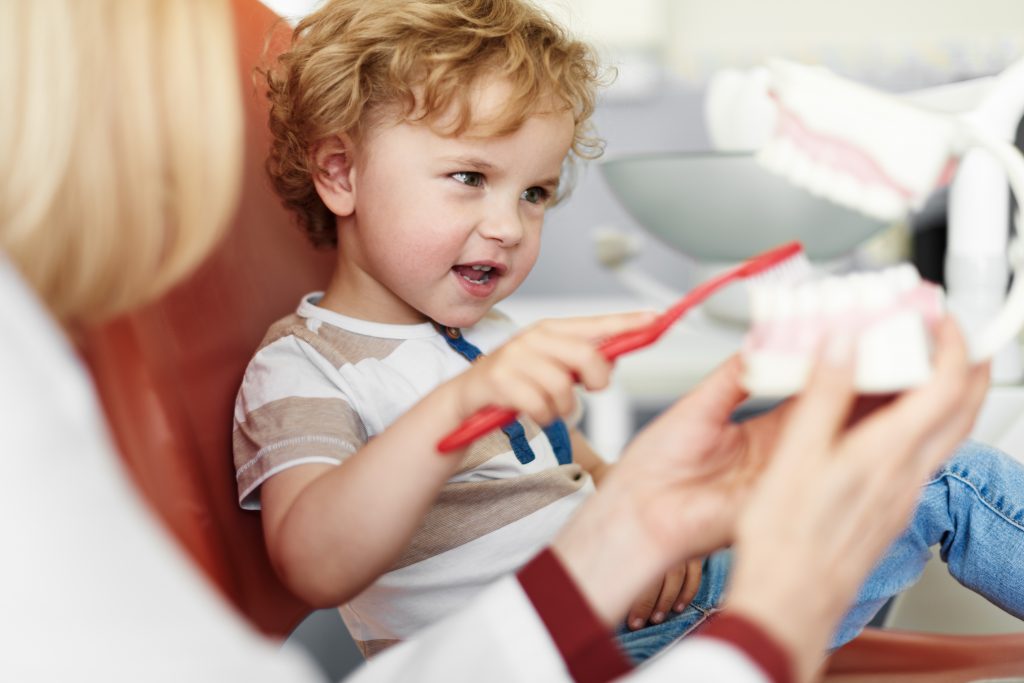It’s easy to underestimate the importance of your child’s baby teeth. After all, they’re going to fall out before long. Neglecting those teeth while they are present, though, is a dangerous thing. After all, those baby teeth play an essential role while present, and one that persists long after the Tooth Fairy has gathered them up.
Why are baby teeth important?
Baby teeth are essential to helping your child learn to speak and chew properly. They also define the gap that your child’s future permanent teeth will grow into. If your child loses her baby teeth before they fall out naturally on their own, those other teeth may twist unnaturally and permanent teeth may grow into the wrong places or in the wrong direction.
There are many things that threaten to undermine the health of your child’s baby teeth, some more obvious than others. The most obvious are probably things like tooth decay and cavities or even injuries from sports or roughhousing. One more dangerous threat to the health of baby teeth may be less familiar. Each dentist in Callingwood who specializes in treating kids wants to shed essential light on that threat: baby bottle tooth decay.
What is Baby Bottle Tooth Decay?
Baby Bottle Tooth Decay refers to cavities that develop in infants and toddlers. Cavities affecting very young children can affect every tooth but most commonly affects an infant or toddler’s upper front teeth. If a children’s dentist in West Edmonton detects tooth decay early enough, it can be removed and your child’s teeth salvaged. If decay has progressed too far to be removed, the tooth may need to be removed.
Baby Bottle Tooth Decay is caused by bacteria that produce acids in the child’s oral cavity. There are two primary sources of that bacteria and triggers for that deteriorating acid production.
Transmission from parent to child
A parent transmits the potentially harmful bacteria to their child by such simple actions as sharing a spoon with an infant, cleaning a pacifier with their own mouth, or even kissing a child’s mouth. If the parent has their own tooth decay-producing bacteria, those bacteria can be transmitted quickly to the child. The best defence against that happening is for the parents to maintain excellent oral hygiene themselves.
Sweetened drinks
The more common cause of Baby Bottle Tooth Decay, though, is your infant’s prolonged and frequent exposure to sweet liquids — a broader category of beverages than you might realize — such as breast milk, formula, juice, and even sweetened water.
The most dangerous way for those liquids to cause Baby Bottle Tooth Decay is to leave those liquids in contact with your child’s teeth for a long time. The classic example of how that happens is putting an infant to bed with a bottle filled with any of those sweet liquids. When that happens, sugars are in contact with her teeth and gums for hours, and bacteria feast on those sugars and produce acids that erode the infant’s teeth.
How can you avoid Baby Bottle Teeth Decay?
Here are five key tips for parents to reduce the risk of their child developing Baby Bottle Tooth Decay and prematurely losing teeth as a result:
- Try to avoid exchanging saliva with your child
- Clean your baby’s gums after every feeding
- Never place sugary drinks in bottles, especially when putting the baby down for a nap or to sleep
- Don’t rinse or soak pacifiers or soothers in sweet liquids
- Ask a children’s dentist near you if your child should receive fluoride to reduce any remaining risks of tooth decay and premature tooth loss.
Every children’s dentist near you is determined to preserve and promote your child’s dental health, from birth to braces (if necessary). You can get your children off to a healthy dental start from the very beginning by bottle feeding carefully. If you have any questions about your infant’s oral health, contact a children’s dentist near you and let them help from the very beginning.

